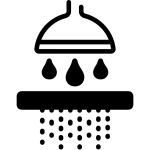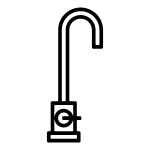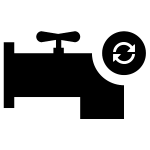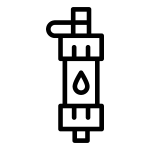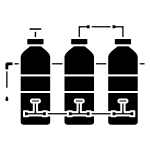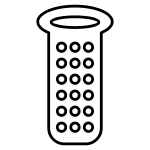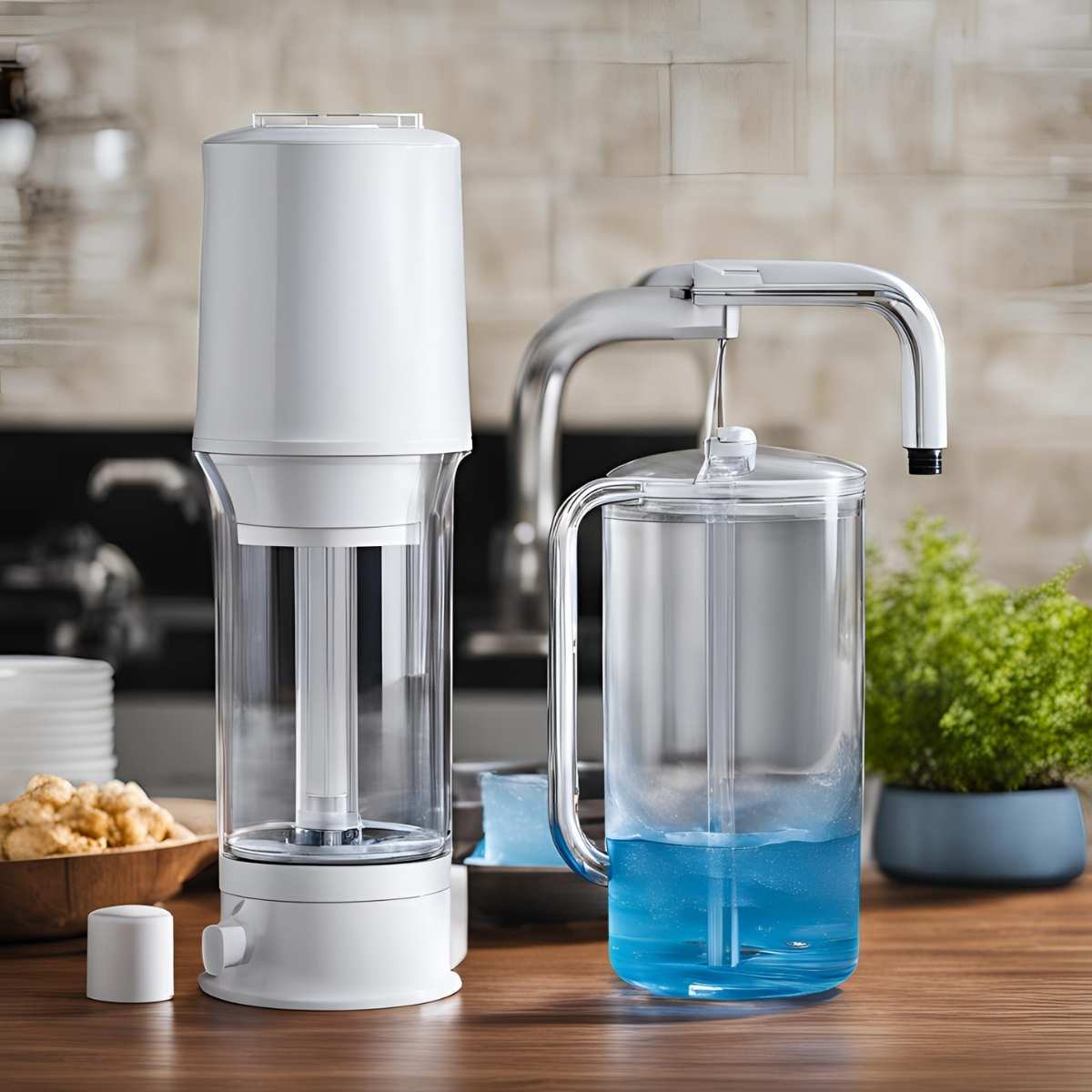Clean, safe, and great-tasting water is a basic necessity for every household. With rising concerns about contaminants, impurities, and poor water quality in many regions, choosing the best water filter system for your home has become more important than ever.
But with so many types of filtration systems available—pitchers, faucet filters, under-sink systems, and whole-house units—selecting the right one can feel overwhelming. In this blog post, Cuoll breaks down everything you need to know to make an informed decision.
Why You Need a Water Filter System at Home
Municipal water treatment does remove many harmful elements, but it doesn’t eliminate everything. In fact, tap water may still contain:
- Chlorine and chloramines
- Lead and heavy metals
- Pesticides and herbicides
- Microplastics
- Sediment and rust
- Bacteria and viruses (in some cases)
Even if your water looks clear, it can still be unsafe or have an unpleasant taste or odor. That’s why many families are turning to home water filtration systems to safeguard their health.
Types of Home Water Filter Systems
Before choosing the best system, it’s crucial to understand the main types available and what they do.
1. Pitcher Water Filters
These are simple and affordable, often using activated carbon filters to reduce chlorine, bad taste, and odor.
Pros:
- Inexpensive
- Easy to use
- No installation required
Cons:
- Limited capacity
- Doesn’t filter heavy metals or microbes effectively
Best for: Small households, renters, or those looking for basic filtration.
2. Faucet-Mounted Filters
These attach directly to your kitchen faucet and filter water on demand.
Pros:
- Affordable
- Convenient for daily use
- Improves taste and odor
Cons:
- May slow water flow
- Doesn’t fit all faucets
- Limited filtration range
Best for: Everyday cooking and drinking use at the tap.
3. Under-Sink Water Filter Systems
These install beneath your kitchen sink and connect to a dedicated faucet.
Pros:
- Powerful multi-stage filtration
- Removes a wide range of contaminants
- Higher water flow rate than pitchers or faucet filters
Cons:
- Requires plumbing skills for installation
- Can be expensive
Best for: Families who cook and drink a lot of water and want a cleaner, more permanent solution.
4. Reverse Osmosis (RO) Systems
RO filters are among the most effective at removing contaminants, using a semi-permeable membrane to remove up to 99% of impurities.
Pros:
- Removes heavy metals, nitrates, fluoride, PFAS, and more
- Great-tasting water
- High purification level
Cons:
- Wastes some water during the process
- Removes beneficial minerals
- Higher cost
Best for: Areas with hard or contaminated water, or people with sensitive health concerns.
5. Whole-House Water Filter Systems
These systems treat all the water entering your home—ideal for showering, laundry, cleaning, and drinking.
Pros:
- Provides clean water at every tap
- Protects plumbing and appliances
- Long-lasting filters
Cons:
- High upfront cost
- Requires professional installation
- Doesn’t remove all contaminants (combine with RO for drinking water)
Best for: Homes with well water, large families, or those needing comprehensive water purification.
Key Factors to Consider Before Buying a Home Water Filter
Choosing the best water filter system for your home isn’t one-size-fits-all. Here are some things to keep in mind:
1. Water Quality in Your Area
Test your water to identify which contaminants are present. A home test kit or a water quality report from your local municipality can guide you. For example:
- High chlorine? Go for activated carbon filters.
- Heavy metals? Look for RO or multi-stage filters.
- Hard water? Consider a water softener combo unit.
2. Household Size and Usage
Larger households or those with high water consumption need systems with higher capacity and flow rate. Under-sink or whole-house systems are ideal in such cases.
3. Budget
Prices vary significantly:
- Pitchers: $20–$50
- Faucet filters: $30–$100
- Under-sink: $100–$400
- RO systems: $200–$600+
- Whole-house: $500–$2000+
Choose a system that fits your budget while balancing performance and longevity.
4. Installation and Maintenance
- Some systems (like pitchers and faucet mounts) are DIY-friendly.
- Under-sink and whole-house units may need professional setup.
- Consider how often filters need replacement and how easy they are to change.
Best Water Filter System for Home – Cuoll Recommends
At Cuoll, we specialize in premium water filtration products designed to meet your needs. Based on functionality, efficiency, and customer satisfaction, here are our top recommendations:
1. Cuoll 5-Stage Under Sink Water Filter
Perfect for families, this high-performance unit filters out:
- Lead
- Chlorine
- Rust
- Microplastics
- Sediments
Benefits:
- Compact design
- Easy filter replacement
- High water flow rate
2. Cuoll Reverse Osmosis System
Engineered for ultra-pure water, this RO system offers:
- 6-stage filtration
- Alkaline remineralization
- Leak-proof performance
Ideal for: Drinking and cooking water where safety is top priority.
3. Cuoll Whole-House Sediment + Carbon Filter System
This comprehensive setup filters all incoming water to your home.
Removes:
- Dirt
- Sand
- Chlorine
- Industrial pollutants
Perfect for: Homes using well water or municipal supplies with known contamination.
Benefits of Installing a Water Filter System at Home
Still on the fence about getting one? Here are some major perks:
✅ Better Tasting Water: Filters remove foul tastes and odors.
✅ Healthier Living: Clean water helps protect against diseases and contaminants.
✅ Cost Savings: Cut back on bottled water expenses.
✅ Eco-Friendly: Reduce plastic waste from bottled water.
✅ Appliance Protection: Filtered water reduces scale buildup and extends the life of dishwashers, washing machines, and water heaters.
Frequently Asked Questions (FAQs)
Q1: How often should I change my water filter?
It depends on the system and water quality. Typically:
- Pitchers: Every 2–3 months
- Under-sink filters: 6–12 months
- RO membranes: 2–3 years
- Whole-house filters: Every 6–12 months
Always follow the manufacturer’s recommendations.
Q2: Can I install a water filter system myself?
Yes—many systems like pitchers, faucet filters, and some under-sink models are DIY-friendly. However, whole-house systems and advanced RO systems may require professional help.
Q3: Will a water filter remove fluoride?
Only reverse osmosis systems and specific filters designed for fluoride removal can reduce fluoride levels effectively.
Q4: Is well water safe without a filter?
Not always. Well water can contain bacteria, nitrates, and heavy metals. Testing and filtration are recommended for safety.
Final Thoughts
The best water filter system for your home depends on your specific needs, water quality, and budget. Whether you’re looking for a simple pitcher or a robust reverse osmosis system, Cuoll has a solution designed with your health and convenience in mind.
Investing in the right filtration system isn’t just about taste—it’s about protecting your family, improving your health, and making a smart, sustainable choice.
Explore Cuoll’s Water Filtration Collection Today
Ready to make the switch to healthier, cleaner water? Visit Cuoll to browse our top-rated home water filtration systems, designed for performance, durability, and ease of use. Choose Cuoll – where clean water begins.


